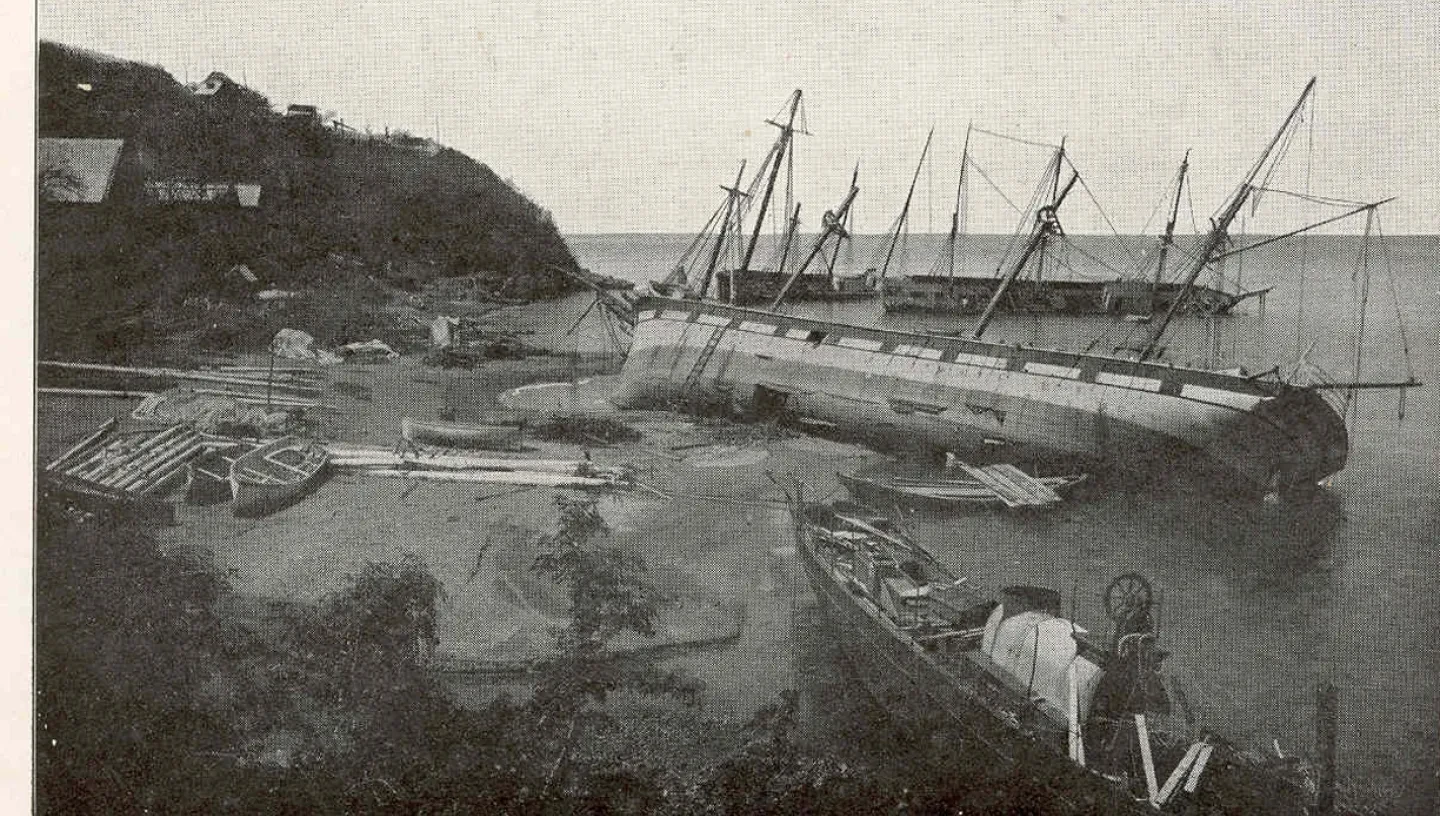
Records of tsunamis go back thousands of years and occur all over the world. Some scientists even believe a tsunami caused the destruction of Atlantis.
A tsunami is a wave, or a series of waves, that occurs in a large body of water. It is caused by some sudden activity on the seabed or at the surface, and has the potential to cause large-scale devastation. Although relatively rare, tsunamis have played an important role in human history.
Tsunami legends
Some scientists have speculated that the legend of the lost city of Atlantis was related to a tsunami event around 1628 BC – and wiped out a whole civilization off southern Spain. Similarly, the eruption of Thera (now know as Santorini), in the Greek Aegean Sea, is estimated to have caused a 30-metre high tsunami that may have hastened the collapse of the Minoan civilisation on nearby Crete.
Examples of catastrophic tsunamis
- One of the most catastrophic tsunamis in Europe occurred on 1 November 1755. An earthquake west of Portugal triggered three tsunami waves, estimated to have been between five and 13 metres high. These waves caused considerable destruction and killed 60,000 people.
- The eruption of Krakatoa in the Sunda Straits off Indonesia on 26–27 August 1883, set off a tsunami that claimed the lives of more than 36,000 people.
- On Boxing Day 2004, an earthquake in the Indian Ocean caused a tsunami, affecting many countries in South-East Asia and killing 230,000 people in 14 countries.
- In 2011, an earthquake occurred east of Japan. The tsunami waves that followed measured up to 40.5 metres, hitting the north-east coast of Japan and killing just under 16,000 people.
Tsunamis and Britain
Reports of tsunamis hitting Britain are few, largely because Britain has no active volcanoes and experiences very limited earthquake activity. But, there is the potential risk, albeit small, of tsunamis triggered by distant underwater landslides.
Scientists have shown that waves generated by the Portuguese tsunami of 1755 hit Mounts Bay in Cornwall – however the waves had lost most of their destructive power by the time they reached Britain.
Evidence also shows that larger scale events have hit Britain. The most destructive caused by an underwater slump, possibly caused by an earthquake, some 7200 years ago. Scientists have estimated this tsunami flooded the Moray Firth and much of the east coast of Scotland.
Despite, these events, tsunamis are still relatively rare occurrences, especially for Britain.